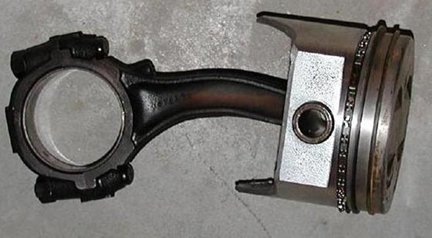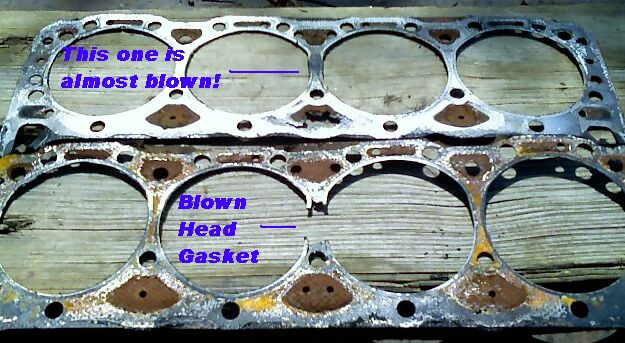My wife hit a large puddle of water in her 2006 Mazda 5. Until then it was running fine. The check engine light came on and car shut down and would not start again. Mazda says it is a head gasket. Is that possible?
-
3Possible? Yes, but it would be helpful to know what the CEL code was.– ZaidCommented Jan 18, 2017 at 12:20
-
1Any idea how large this large puddle was? How high on the car was the waterline?– raydoweCommented Jan 18, 2017 at 15:02
-
1As a rule, heads (and blocks) crack and gaskets are "blown" or breached. Pistons can be "holed".– mckenzmCommented Jan 19, 2017 at 21:34
-
How deep was the puddle? A sudden splash of cold water on a hot engine can cause cracks, but if water actually went into the engine, the impact could be much worse. How likely is it that water actually got high enough to be ingested?– barbecueCommented Jan 20, 2017 at 0:57
-
From memory the cold air inlet is right behind the front bumper and in front of the wheel - a ridiculously vulnerable location for an air inlet. So a puddle over shin height is likely to be ingested.– CriggieCommented Jan 20, 2017 at 2:55
3 Answers
It is totally possible. Combustion chambers are quite small and it doesn't take much fluid to fill one up.
As the piston goes down during the intake cycle, a vacuum is created and anything in the intake will be sucked in. During the compression cycle, if fluid has been injected it has to go somewhere since it can't be compressed.
A little bit of it will pass the piston rings, contaminating the oil, but it's a minor amount. After that there are two things that can happen:
The head gasket will either rip allowing the piston to push the fluid out, or the piston rod will bend; often, both.
You can see a bent piston rod:
An engine with a blown gasket will be able to turn when you crank it; if it can't turn or makes metallic noises, you have a bent piston.
-
1
Yes. If the engine ingests water, you have a big problem: water is incompressible. When water gets into a cylinder, it will be forced out through the path of least resistance: the head gasket. And that's if you're lucky. If the water isn't squeezed out, you get hydraulic lock and the piston rod will bend or break.
Depending how fast the engine was running when she hit water and how much was taken in through the inlet manifold and into the cylinders... it's possible that more than one piston rod may fail / the head retaining bolts may fail / the pistons may break / the head or block may fail.
Someone I know of had a bus throw water at her almost new BMW 330d... it destroyed the engine.
Can the engine turn over with the starter motor? Can you turn the engine over with a wrench on the end of the crank shaft? If it turns over at least one revolution it kind of rules out bent rods. If you turn it over by hand you can usually feel the compression on each cylinder because you need to make more effort to compress the air... you can feel if one or more cylinders is leaking air through a blown gasket or holed piston. You might even hear the wheeze of air escaping and be able to hear any cylinders that seem to be leaking badly. If you can get a compression tester you can get a better measure of how much leak there is from the cylinders and if some are way off they indicate a blown gasket or worse.
If you've just got a failed gasket you got off lightly! the fact that the engine won't start makes it unlikely just to be a failed gasket.


